
China's biggest homebuilder is fighting for its life. Here's what you need to know about the real estate crisis
Just a few months ago, Country Garden was the biggest property developer in China, with more than 3,000 developments spanning the country.
1970-01-01 08:00
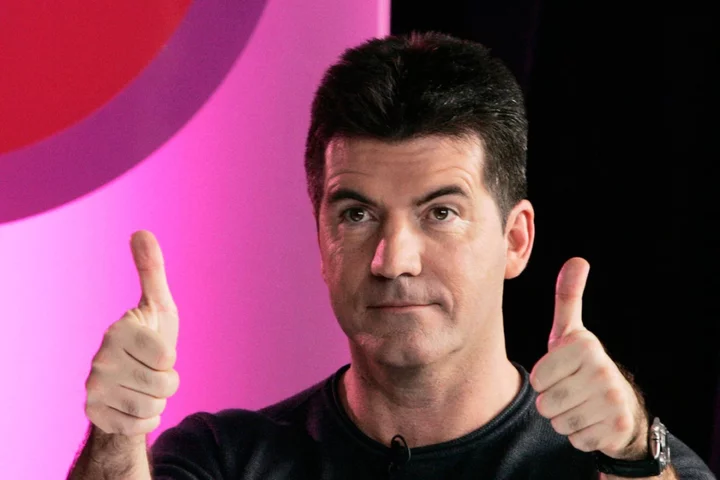
As Simon Cowell shares positive therapy experience, how can it help even if you aren’t in crisis?
X Factor boss Simon Cowell, 63, has shared that having discovered therapy in the past year, he feels as though “a weight has lifted off my shoulders”. The music mogul, who is behind The X Factor and Britain’s Got Talent, said he wished he had seen a therapist “10 or 20 years ago” in a recent interview with the Daily Mirror. He also shared that the deaths of his parents and the coronavirus pandemic had affected his mental health. Seeking therapy has been transformative for Cowell and it could do the same for you, whether you are in crisis, or just want to learn more about yourself. Cowell has said engaging in therapy had a “super positive effect” on his life and encouraged others to do the same, so here’s what you should know. There are different types of therapy Contrary to what many people may believe, counselling, where you sit and talk through events and reflect, is not the only form of therapy. “There are a whole host of different types of therapies available, from counselling, cognitive behavioural therapy, mindfulness-based cognitive therapy, acceptance and commitment therapy, interpersonal therapy, psychodynamic psychotherapy to eye movement desensitization and reprocessing,” explains psychologist and author of The Self-Care Revolution, Suzy Reading.Each one can have a different role in helping you get to know yourself better, handling trauma, feeling more grounded and coping more day-to-day. Therapy isn’t just for rock bottom Therapy doesn’t have to be a last resort. “When it comes to therapy, there are no hard and fast rules,” says Liz Ritchie, a St Andrew’s Healthcare psychotherapist. “Many people associate seeking help with crisis, but there is no reason why you cannot maintain regular sessions with your therapist. There is now a wealth of evidence that supports that therapy can also be a preventative form of mental healthcare, a little bit like going to a dentist or a doctor. “Life is busy and stressful, which means we don’t often have time to process cross words with a loved one, work altercations or issues with friends and family members.” You’ll understand yourself better You may think you understand yourself totally, but there are always new parts of ourselves to get to know. “Therapy helps us better understand ourselves, our relationships and the world, connecting us with how we feel, and why we might feel as we do. It is a journey of self-discovery, helping us appreciate our strengths and identify our values,” says Reading. It could give you an emotional toolkitIt can be helpful to have “an impartial sounding board to speak openly and honestly and the opportunity to be heard, validated and understood”, says Reading. “Therapy helps us challenge unhelpful thoughts, dispute self-limiting beliefs and can help us create new habits. Therapy is also about developing healthy ways to move through our emotions, creating a fresh toolkit of coping strategies and can be very practical in nature by helping us address specific challenges or goals.” But… it isn’t easy Unfortunately getting therapy is not always easy. If you do not have the financial freedom to be able to pay for a private therapist, you may be faced with long waiting lists and restrictive services. However, NHS therapy is an option and can be really helpful, so be sure to look into the options you can afford near you. Reading recommends checking out BPS and HCPC to find a qualified therapist. NHS resources can be accessed here. If you are seriously struggling with your mental health, and are at risk, please call 999 or the Samaritans on 116 123.
1970-01-01 08:00

Clergy dish up meatball sundaes, pickle ice pops and a little faith at the Minnesota State Fair
Faith has a deep-rooted presence at the Minnesota State Fair, from the decades-old Lutheran and Methodist dining halls to an evangelical chapel handing out thousands of free Bibles to a booth seeking to combat misinformation about Islam
1970-01-01 08:00
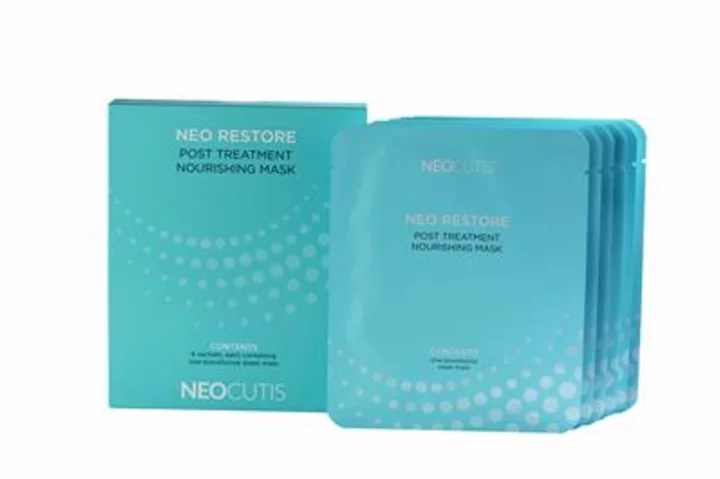
Merz Aesthetics® Expands Upon NEOCUTIS® Skincare Line with Launch of New ‘Neo Restore Post Treatment Nourishing Sheet Mask’
RALEIGH, N.C.--(BUSINESS WIRE)--Aug 31, 2023--
1970-01-01 08:00
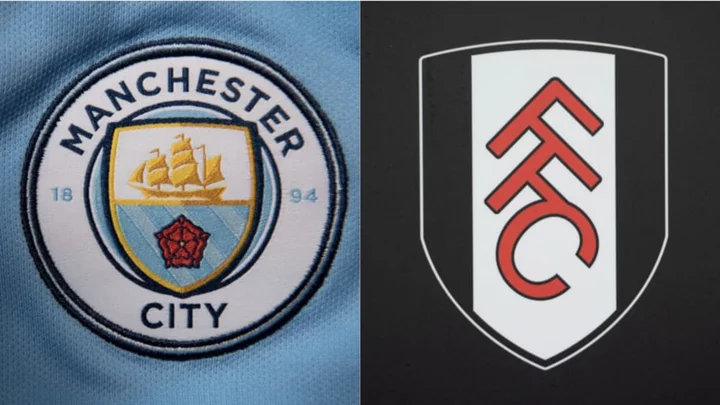
Man City vs Fulham - Premier League: TV channel, team news, lineups & prediction
Previewing Man City's upcoming Premier League clash against Fulham on Saturday afternoon.
1970-01-01 08:00

China developer Vanke sees pressure on profit amid market downturn
HONG KONG Chinese state-backed property developer China Vanke said its profit would be under pressure in the short
1970-01-01 08:00

Chiefs Rumors: Andy Reid's trick plays, Justyn Ross plan, Patrick Mahomes QB2
With the Chiefs first game of the season exactly a week away, we're finding out more about how the 2023 roster is shaping up.
1970-01-01 08:00

Special Report-Inside the downfall of embattled property developer China Evergrande
By Engen Tham, Julie Zhu and Clare Jim SHANGHAI/HONG KONG - In the beginning, Hui Ka Yan followed a simple
1970-01-01 08:00

Germany home prices to fall in 2023 but rents to keep rising - Reuters poll
By Indradip Ghosh BENGALURU Home prices in Germany will fall by more than 5% this year and stagnate
1970-01-01 08:00
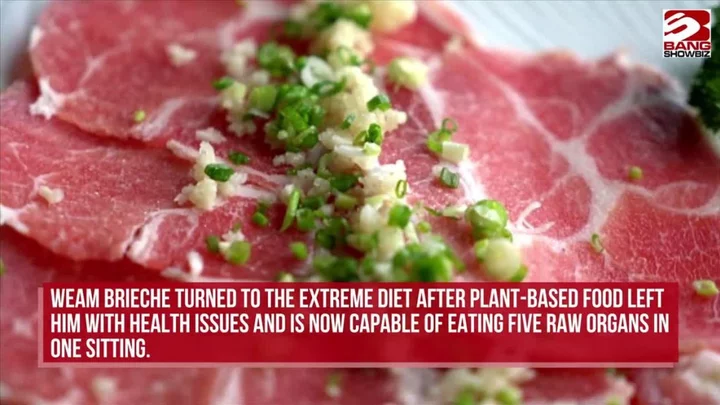
Former vegan claims he hasn't been sick after switching to raw meat diet
A 20-year-old man from Sweden has switched out his vegan diet for raw meat with claims he has "never gotten sick." Jones Hussain, who transformed his diet “in the name of health,” opened up about his decision after watching the late American alternative food nutritionist, Aajonus Vonderplanitz, whose “Primal Diet” has inspired people worldwide. He now enjoys raw chicken, cuts of beef, minced meat and fish – even if they are brown or smell slightly. He also implements fruit and juiced veggies into his diet. Health has always been important to Hussain, who said he would not eat a slice of cake for £10,000 because of the sugar. He claims to have not had a slice since the age of 13. “If any food safety expert looked at the food I eat, I think they would have a heart attack because the beef is sometimes brown, the liver looks green, the chicken stinks,” Hussain told PA Real Life. “But I eat that and then nothing happens. I did the experiments on myself to see whether what we have been led to believe is actually true and surprise, surprise, it wasn’t.” Hussain, who said he has always been driven by “health”, came across the raw meat diet plan in 2019 a few months after quitting veganism. “My starting point has always been health,” he said. “So I’ve experimented with a bunch of things in the name of health.” The diet was designed by Vonderplanitz, who touted the benefits of eating raw foods, in particular meat and dairy. “I found one of his lectures on YouTube and started listening,” he said. “At first, I was just as shocked as anyone would be to see someone eat such a diet.” But Hussain said he found Vonderplanitz’s arguments to be “honest and convincing” and so decided to give it a try. “I ate raw meat for the first time in November 2019 and I felt great,” he said. “It was just a straight cut of raw beef.” Having not fallen ill, Hussain then decided to try raw ground beef. “That was the scary part because that’s when you enter into uncharted territory,” he said. “I was like, if I get sick then I won’t do this anymore. Lo and behold, again, I didn’t get sick, so I started eating raw ground beef because it’s much cheaper than straight cuts.” To start with, Hussain would flavour the raw meat with spices and garlic. “But then I felt that I didn’t need them, even from a taste perspective,” he said. “So I just started consuming it by itself and ever since then I’ve eaten raw ground beef almost every day.” By the summer of 2020, Hussain had become accustomed to eating all types of meat. “I had no problems eating raw chicken because I had found a fairly good source in the supermarket so I ate it like KFC,” he said. “I also started buying raw liver here and there, and eating a small amount every day.” The raw meat Hussain kept in his fridge soon started to turn “green”, but this did not stop him from eating it. “Since I was so convinced about what Aajonus was saying, I was not worried and just consumed it,” he said. “But if there was any white mould, then I got rid of the batch, although this did not happen very often.” Hussain has continued eating raw meat ever since, although his family prefers ground beef to chicken because of the smell. “Nowadays I don’t so much eat raw chicken because it stinks up the house,” he said. In a single sitting, Hussain said he is capable of consuming around 400g of raw liver. He said he believes dumping veganism for raw meat has improved his gut health and helped get rid of his acne. “The thing with raw meat is that the nutrients are more easily absorbed and unaltered,” he claimed. “It’s not that raw meat has some kind of special superpower, it’s just that by not cooking it, I get more nutrients and no byproducts.” NHS guidelines, however, state that “cooking meat properly” kills harmful bacteria which can cause food poisoning. Hussain had been a vegan for two years, from 2017 to 2019, before eventually converting to the primal diet. “It’s not that I was struggling to get enough nutrients,” he said. “It’s that a human being cannot survive on a vegan diet successfully. “Of course, you can take supplements but it’s not the same thing, because they are processed. “There is no other way of getting these nutrients naturally other than by eating animal products. “So veganism on that basis, falls on its face.” Hussain also eats raw fish such as salmon and tuna and said he is happy to eat any type of meat provided he can find a reliable supplier. The Primal Diet also includes fruit and vegetables, all of which are consumed raw. “I eat cucumbers and tomatoes, as well as oranges and apples when they are available to me,” he said. “The philosophy is don’t cook the food, but there is a variety.” 'Hussain’ unusual diet often shocks people, including his parents who are concerned for his wellbeing. He explained: “Usually people have the same reaction, at first they think what the hell is this guy doing? He’s going to die in a few days. “Then they speak to me and find out that I’ve been doing it for three and half years, that I’ve never gotten sick, that my arguments are logical and that I look healthy. “They are like all right, that’s a new perspective that I had not heard before.” People behave differently on social media, however, said Hussain, who has his own YouTube channel, Excellent Health. He also works part-time at an elderly day care centre and has written a book titled The 6 Health Commandments. “The only time I ever got food poisoning was from a frozen bag of raspberries before I started eating meat,” he said. “I decided not to act out of fear, but to see what is true and what isn’t true.” To find out more about food safety, visit www.food.gov.uk/safety-hygiene/cooking-your-food. Sign up for our free Indy100 weekly newsletter Have your say in our news democracy. Click the upvote icon at the top of the page to help raise this article through the indy100 rankings.
1970-01-01 08:00
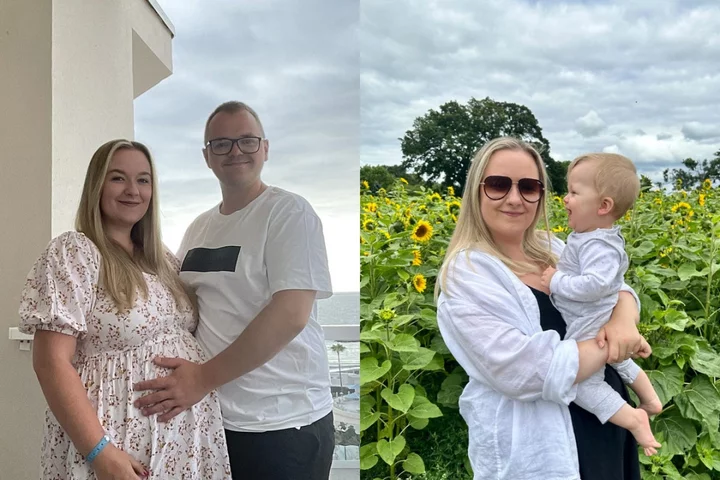
Terminally ill mum wants ‘happy memories’ with family after hand numbness turned out to be deadly disease
A mum who was told she likely suffered from carpal tunnel syndrome after feeling numbness in her right hand during her pregnancy has been given just a few years to live after scans revealed she will soon be paralysed. Charlotte Parker, 28, from West Berkshire, was diagnosed with amyotrophic lateral sclerosis (ALS) nine months after giving birth and is now trying to create “happy memories” with her young family while there is still time. The rare condition, a type of motor neurone disease (MND), means Charlotte only has two to five years’ life expectancy during which time she will become increasingly paralysed. Charlotte, who lives in Thatcham with her fiance George, 32, a mechanic, and their three children, says she wants her 11-month-old son Jimmy to know she was there. Her friends and family are fundraising so she can afford to take her family to Disneyland in Paris and take advantage of what time they have left together. “I don’t think you can imagine having to tell your parents at 28 that you have been diagnosed with a terminal illness,” Charlotte, who works as a revenue and debt accountant at an energy company, told PA Real Life. “At the moment my life is so fast paced that I don’t really have much time to slow down and think about what’s happening. “Most people think MND-ALS affects older people but it actually affects a wide range of people. It can happen to anyone.” Charlotte was seven months’ pregnant when she began feeling a strange “numbness and weakness” in her right hand. “I was struggling to open jars and bottles,” she said. “Gradually it just got worse and worse and by the time I gave birth to Jimmy, I was considerably weaker. “Doing day-to-day tasks while trying to learn how to look after a newborn baby was definitely a challenge.” After flagging the numbness to her midwife, Charlotte was told she likely suffered from carpal tunnel syndrome, a common health condition caused by pressure on a nerve in the wrist. But Charlotte was referred to a neurologist when she went for a routine checkup six weeks after Jimmy was born. “He sent me for an MRI in January for possible inflammation in the brain,” she said. “I think subconsciously at the time that’s when I knew it was something a bit more serious.” While Charlotte was worried, her results came back and suggested there was no problem with her brain or spinal cord. Instead of getting better, however, the numbness started to spread to her other hand. “I kept calling because it started going into my left hand as well,” she said. “I am still able to move my fingers in my left hand but my right hand does not really work anymore.” In June, Charlotte was given an electromyography, a medical test which looks at how a person’s nerves and muscles respond to stimulation. “They put stickers on you and send pulses up your arm,” she said. “I got called in to see the neurologist quite quickly after that, which is when he advised that he strongly believed that it was MND-ALS.” I want to do as many days out with the children as possible so that we have those memories all together. Charlotte Parker ALS, the most common motor neurone disease, is incurable and causes progressive weakness and paralysis, usually leading to death within three to five years, the National Institute of Neurological Disorders and Stroke said. Charlotte’s worst fears were confirmed after she visited John Radcliffe Hospital in Oxford in July and was formally diagnosed. “It’s been a lot to adjust to, especially with a four(-year-old), seven(-year old) and eleven-month-old,” she said. “To know that there is no cure or treatment that will give me a substantial lease of life. “It is just going to deteriorate pretty quickly.” Charlotte broke the devastating news to her family and friends that her illness is terminal. “My youngest is completely none the wiser and the girls are aware that my hands are getting weaker and that it will move to my legs, but we haven’t gone into the detail of what it means will happen.” Unfortunately, doctors are unable to say how quickly Charlotte’s condition is progressing. “Each person’s story is different,” she said. “It’s such a maze on how one person’s body deteriorates to the next.” But Charlotte is not letting the diagnosis get in the way of her family plans. The mum, who does not have life insurance, plans on continuing to work for “as long as possible”. “I am fortunate that my work provides death in service,” she said. “If I can, I will try and work for as long as possible so that my partner and children do have something to help them for the next however many years.” She also plans on marrying the “love of her life”, George, after getting engaged two years ago and falling pregnant. “I fell pregnant and it just got pushed to the side. I didn’t want to get married nine months’ pregnant,” she said. “It’s time for us to celebrate us as a couple rather than just accepting that we’re not going to be together for the rest of our lives. “We have to make good of what we can and celebrate what we do have, right now, rather than just accepting the situation.” The couple, who recently went on holiday to Pembrokeshire, are also looking to create “happy memories” while there is still time. “We were on the beach late evening, when it was raining and full of wind, and we were taking photos running in and out of the sea to make memories,” she said. “I want to do as many days out with the children as possible so that we have those memories all together. “Even silly things, like being there for Jimmy’s first haircut and taking him to feed the ducks so that we can capture those memories and that he knows that I was there.” Charlotte’s friends have set up a fundraiser on GoFundMe to help them cover their costs, including a trip to Disneyland, Paris. “It would be a great trip to have with them,” she said. “I just want to enjoy my family and do as much as I can with them because there will come a point where even though I’m around, it will be a lot more complicated.” They have so far raised £11,235 of their £15,000 target. Charlotte continued: “A huge thank you to anyone who can help and it will go to creating some of the best memories I can with my family before the inevitable does happen.” To support Charlotte, visit: www.gofundme.com/f/complete-her-wishes-with-her-family Read More Woman’s blood cancer misdiagnosed as carpal tunnel due to burning hand pain What happens to your brain when you’re pregnant? Cyclist completes 960-mile ride to remember friends who died from MND What is sickle cell disease and how do you know if you have it? Project launched to bust myth that cancer is a ‘white person’s disease’ Man who lengthened his limbs by three inches says he feels ‘so much happier’
1970-01-01 08:00
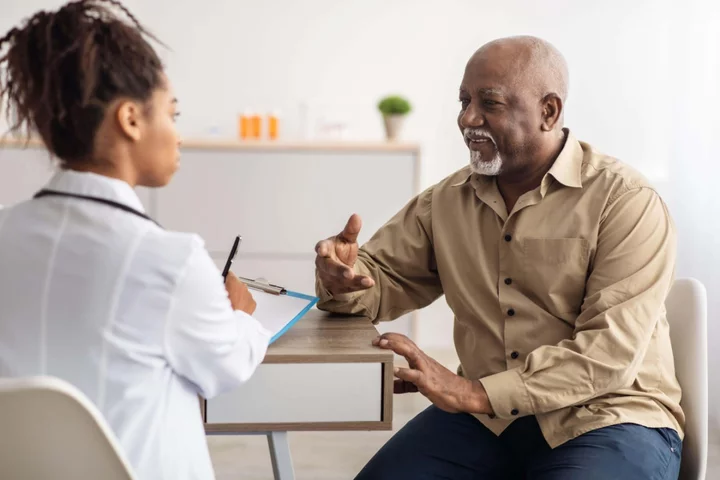
Project launched to bust myth that cancer is a ‘white person’s disease’
More must be done to get black, Asian and ethnic minority people to participate in breast cancer trials, experts have said, as they warned that people from these backgrounds have been under-represented in previous studies. Medics said that they want research into the disease to be “relevant to people we see in the clinic”. Experts said that there is a “broad misperception” that black women “don’t suffer as much from breast cancer” which can result in the perception that “cancer is a white person’s disease”. If I hadn’t gone on the trial at The Christie, I wouldn’t be here today Jasmin David This is despite the fact that previous studies have found that black women are more likely to die from breast cancer compared to their white peers. They are also more likely to develop more aggressive cancer and be diagnosed when their cancer is at a more advanced stage. It comes as the NHS Race and Health Observatory launched a new campaign alongside Macmillan Cancer Support to improve diversity in breast cancer clinical trials. The project, which is being supported by Roche, aims to raise awareness of the lack of diversity in clinical studies, improve communications and provide longer term support to patients. Specialist nurses will be provided at two major cancer hubs – Bart’s Health NHS Trust in London and The Christie NHS Foundation Trust in Manchester – to help guide patients through the process. Men, who account for 1% of breast cancer patients in the UK, are also being included. The NHS Race and Health Observatory said that there are “multiple barriers” around the recruitment, communication and retention of black, Asian and ethnic minority patients in clinical trials. It said that data show that people from an ethnic minority background are poorly under-represented in many clinical trials. And the Caribbean African Health Network said that there has been a “disengagement” in research “as a result of mistrust”. Jasmin David, a 53-year-old breast cancer patient from Fallowfield in south Manchester, took part in a clinical trial which saved her life and is encouraging others to do the same. Two years after her initial diagnosis and treatment at The Christie she was told that the cancer had come back and had spread to her lungs, lymph nodes and chest bone. The mother-of-two was told she had less than a year to live but was also offered the opportunity to take part in a clinical trial at the National Institute for Health and Care Research Manchester Clinical Research Facility. Ms David is now cancer-free. “If I hadn’t gone on the trial at The Christie, I wouldn’t be here today,” she said. “I have two children and now I get to be there for them as they grow up. “Research gave me a second chance and life and I’m relishing every second of it. “I want everyone, no matter their ethnicity, to have equal access to clinical trials, so I’m glad that this important piece of work is being done. I hope that by sharing my story I can inspire more women like me to come forward and take part in clinical trials.” Dr Habib Naqvi, chief executive of the NHS Race and Health Observatory, said: “We are pleased to announce this partnership and our joint commitment to ensuring inclusion and representation in future breast cancer trials. “We believe that when targeted, culturally sensitive interventions and communications are put in place, under-represented groups can be successfully recruited into clinical trials.” He added: “There is a broad misperception that black women don’t suffer as much from breast cancer or it does not run in their family history. This can result in the perception that cancer is a white person’s disease. “We want this pilot to encourage women at risk, those already diagnosed and individuals undergoing post treatment to come forward and share their experiences and get the information needed.” Professor Richard Simcock, chief medical officer at Macmillan Cancer Support, added: “As a Breast Cancer Oncologist I want to know that research is relevant to the people we see in clinic. Historically that has not been the case. “I’m delighted that Macmillan can support this project to ensure that future evidence from clinical trials is representative and inclusive.” Charles Kwaku-Odoi, chief executive of the Caribbean African Health Network, said: “Across the black community there is an undoubted legacy of disengagement in research and most certainly clinical trials that stems back decades as a result of mistrust. “This has not served us well because it leads to a lack of appropriate interventions that perpetuate the grave health inequalities in breast cancer care. “This partnership approach to build solutions to improve engagement in clinical trials in breast cancer treatment and care is very much welcomed. We are looking forward to working in a collaborative way to build trust, improve awareness and ensure that barriers surrounding access to clinical trials are addressed.” Read More Charity boss speaks out over ‘traumatic’ encounter with royal aide Ukraine war’s heaviest fight rages in east - follow live 10 slick ways to kit out your student digs 4 essential officecore trends to update your work wardrobe Sickle Cell Awareness Month: What is sickle cell disease and how do you know if you have it?
1970-01-01 08:00
